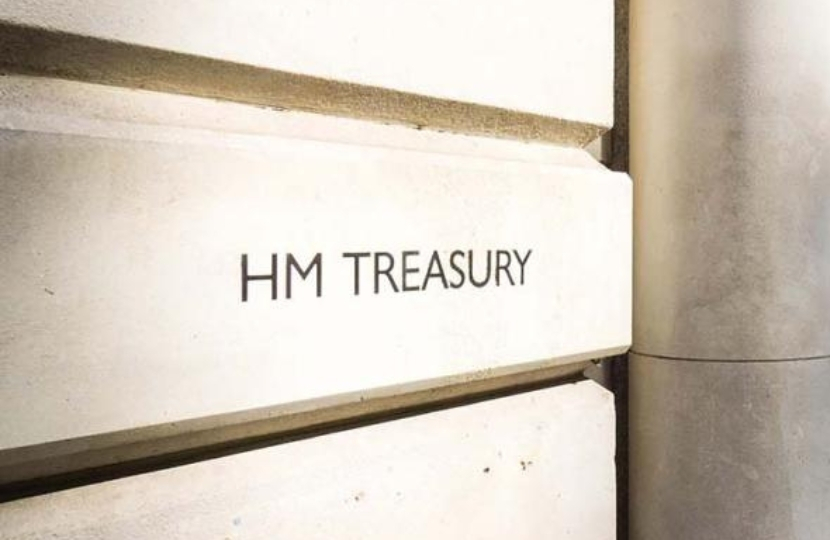
Small businesses receive boost as VAT threshold raised and business rates frozen.
- 28,000 small businesses freed from paying VAT, encouraging them to invest and grow as the threshold is raised from £85,000 to £90,000
- Over one million properties protected from higher bills by freezing the small business rates multiplier for a fourth consecutive year
- Government backs British businesses as it sticks to the plan to cut taxes, reward hard work and grow the economy
Small businesses have today (Monday 1 April 2024) received a boost as the VAT registration threshold is raised from £85,000 to £90,000, and £4.3 billion of business rates relief comes into force.
Recognising the inflationary pressures facing small businesses, especially with energy bills, the Chancellor Jeremy Hunt announced a raft of measures to support them at Spring Budget, sticking to its plan to grow the economy and reward hard work. Raising the threshold will take 28,000 businesses out of paying VAT altogether, and ensure the UK has a higher threshold than any EU Member State and joint highest in the Organisation for Economic Co-operation and Development (OECD).
The small business multiplier for business rates will also be frozen from today for a fourth consecutive year, protecting over a million ratepayers from a 6.6% increase in their bills. The measure is part of the £4.3 billion business rates support package announced at Autumn Statement that includes the 12-month extension of the 75% relief for 230,000 Retail, Hospitality and Leisure (RHL) properties, also coming into force today.
To celebrate the boost for small businesses, Exchequer Secretary to the Treasury, Gareth Davies, visited the Chai Guys business in London alongside Enterprise Nation, a small business support network, to discuss how changes to VAT and business rates will benefit businesses across the country.
Exchequer Secretary to the Treasury, Gareth Davies, said:
We’re rewarding work and backing Britain’s small businesses– the lifeblood of the economy and beating heart of communities – with support on VAT and business rates.
Combined with our decisive action to reduce inflation from over 11% to 3.4%, these measures will help ensure the local, independent businesses that many of us cherish most will continue to thrive and help our economy grow.
Having joined the Exchequer Secretary on his visit, Enterprise Nation’s Head of Policy & Government Relations, Daniel Woolf, said:
Enterprise Nation welcomes this timely support from the government. Freezing business rates for the fourth year running offers some stability for over a million small property owners. Extending the 75% discount for retail, hospitality and leisure firms will see 230,000 businesses breath a sigh of relief. And the 10-year rates relief for film studios shows the creative sector is being prioritised.
Our innovative start-ups and entrepreneurs drive job creation and economic growth. Targeted relief like this provides a timely boost as small businesses navigate turbulent times. It’s great to see their needs being addressed.
Welcoming the extra support for small businesses, Tina McKenzie, Policy Chair, Federation of Small Businesses (FSB), said:
This is a big day for small businesses. FSB has campaigned for decisive action to increase the VAT threshold, freeze business rates, and extend the retail, hospitality, and leisure discount and we’re pleased to these come in today.
April 6 will also mean a cut in National Insurance for the self-employed – the Government is right to take forward practical, impactful measures that help small businesses drive growth in all of our local communities.
The government also announced a NICs cut for 29 million working people in the Spring Budget, the next step towards ending the unfairness of paying two types of tax – NICs and Income Tax. This is part of the plan to make work pay - incentivising work and boosting growth.
These tax cuts arrive alongside other measures coming into force due to the start of the new business tax year on 1 April. Thanks to the progress the government has made on the economy, with inflation having more than halved and the economy outperforming European neighbours, the government has been able to introduce tax cuts for businesses and bring in generous measures that will grow the economy.
As part of the £1 billion package of tax reliefs for the creative sector announced at Spring Budget, film studios across England will receive 40% relief on gross business rates bills until 2034. This £470 million tax cut will ensure the UK remains an attractive place for film and TV companies, helping grow the UK’s £11.9 billion sector.
This is alongside the transformational UK Independent Film Tax Credit (IFTC), designed to boost the production of UK independent films and support UK talent in films. Under the IFTC, eligible films will be able to claim an enhanced credit, at a rate of 53%, on their qualifying expenditure.
The tax cuts for small businesses form part of the government’s ‘Help to Grow’ initiative to make 2024 the year of the SME, including through providing swift and simple access to finance with the British Business Bank having already delivered £1 billion of loans to over 100,000 businesses, and UK Export Finance providing £6.5 billion of support to help SMEs export around the world.
The first SME Connect event hosted by the Prime Minister and Cabinet Ministers on 18 March 2024 built on this as around 150 SMEs and business groups met to discuss the ongoing work the government is doing to support smaller firms.
At the conference, the Prime Minister announced a major package of reforms, including cutting red tape for SMEs, leveraging more private investment in female founders, and investing £60 million of support for businesses to deliver up to 20,000 more apprenticeship places.
Today also represents the first anniversary of the introduction of full expensing, a key business ask that enables companies to invest for less by receiving up to 25p off their tax bill for every £1 invested in qualifying plant and machinery. Full expensing is one of the biggest business tax cuts in modern British history and is worth more than £50 billion over the next five-year period.
Following engagement with industry, the Chancellor announced at Spring Budget that the government will seek to extend full expensing to assets for leasing when fiscal conditions allow and will publish draft legislation for consultation shortly.


